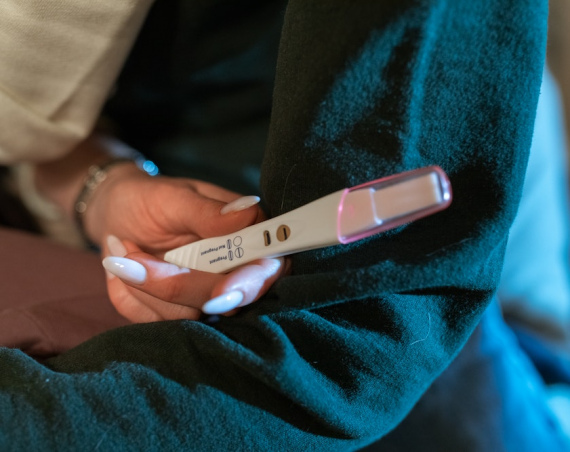Megan Capriccio’s recently published article Femtech: Controversial or Necessary? initiated some great discussions in our community. To contribute to the conversation, we have reached out to industry experts, founders and researchers and asked them to answer the question: “Should Femtech Be a Thing?”. In the upcoming weeks, we will be sharing their responses. This is the second article in this series.

For today’s article we asked the founders of Aavia, Moon + Leaf, Rosy, and Lioness to share their views on “femtech”. Here’s what they had to say.
Aagya Mathur, CEO & Co-founder of Aavia
We need to advocate for women’s health as its own distinct category for it to be fully understood and respected, only then will it be supported with dedicated time, research, and funding. Once the female population’s unmet needs are finally understood, FemTech will become just ‘tech’.
‘FemTech’ isn’t shifting the focus on women to a niche subcategory, it is highlighting the needs of over 50% of the population that should have always been a major focus and category.
There are major biological and experiential differences between males and females, but unfortunately there is a wide research and data gap favoring males — so now we’re filling it.
With FemTech, and at Aavia, we’re ensuring that female bodies get the health options, attention, and care they deserve.
Aavia is a physical product and accompanying app to help women take their birth control pill on time.
Shaina Kandel, CEO & Founder of Moon + Leaf
There is a fear that labeling products and services for half the population as femtech creates the false impression of a niche market that exacerbates marginalization.
But there is a huge opportunity here. By showing the actual size of the market and the growth rate of the market, femtech will cease to be perceived as niche.
Now that women are driving innovation, increasingly able to obtain investment, and creating products and services to meet our own needs, we are able to create a new industry that has prowess. This is about moving from marginalized to mainstream. This is about saying, yes – women’s health is important and deserves innovation.
From my perspective, with femtech gaining traction as a fast growing industry, there is a baseline understanding of its inherent value. When pitching period products to mostly male investors, the growth of the femtech industry means I don’t have to defend the argument that products for periods are not niche. Having femtech as a recognized industry makes it easier for me to attract investment so I can serve the women I set out to serve.
Moon + Leaf create hemp-derived products, that support a woman’s body during her period.
Lyndsey Harper, CEO & Founder of Rosy
Femtech is and absolutely should remain a thing. I agree with Megan Capriccio’s take that without a name, without a cause to rally around, this completely overlooked sector will continue to be completely overlooked. Femtech is not meant to be exclusionary as Olivia Goldhill states, but meant to draw attention to a sector of ignored problems. The label “femtech” will enable more funding, as investors now know that it is a $50B opportunity. The label “femtech” will have conferences and slack channels built around it, decreasing isolation and encouraging collaboration. The label “femtech” will encourage entrepreneurs who are looking for problems to solve to pursue questions that may have never before been considered. Only once there are as many solutions for women’s health as there are for men’s, founders know where and how to get money and advice, women feel that their needs are being heard and met, and we feel that true parity has been reached, can we lose the label of femtech.
Rosy is a research-based technology solution for women who suffer from low libido
Liz Klinger, CEO and Founder of Lioness
I’m conflicted about it, similarly to how I’ve felt conflicted about sextech.
On the one hand the terms make about as much sense as having “pancreas-tech” or “diabetes-tech” … those all fall under “healthtech” or just “healthcare.” Women’s health and, more aptly, health for people with vaginas, should not need to be something “different” and separated from health more broadly, especially considering these topics ARE health for half of the world.
On the other hand, for investment and awareness, I don’t think topics and businesses that fall under “femtech” (or “sextech” even) would have gotten as much attention or funding as they have if they didn’t have some sort of name and movement behind them. It’s why people like Ida Tin of Clue coined the term in the first place — because “stuff for people with vaginas” was not considered a market worthy of attention and investment even just a few years ago until she started talking about it in a similar vein as agtech, fintech, or other trendy investment topics, and others starting talking and paying attention.
I hope that in time, as more of these topics become mainstream, these terms can become obsolete and we can consider a lot of this as just part of people’s health.
Lioness‘s mission is to advance knowledge and understanding of pleasure and provide access to knowledge for people to use on their own terms.



